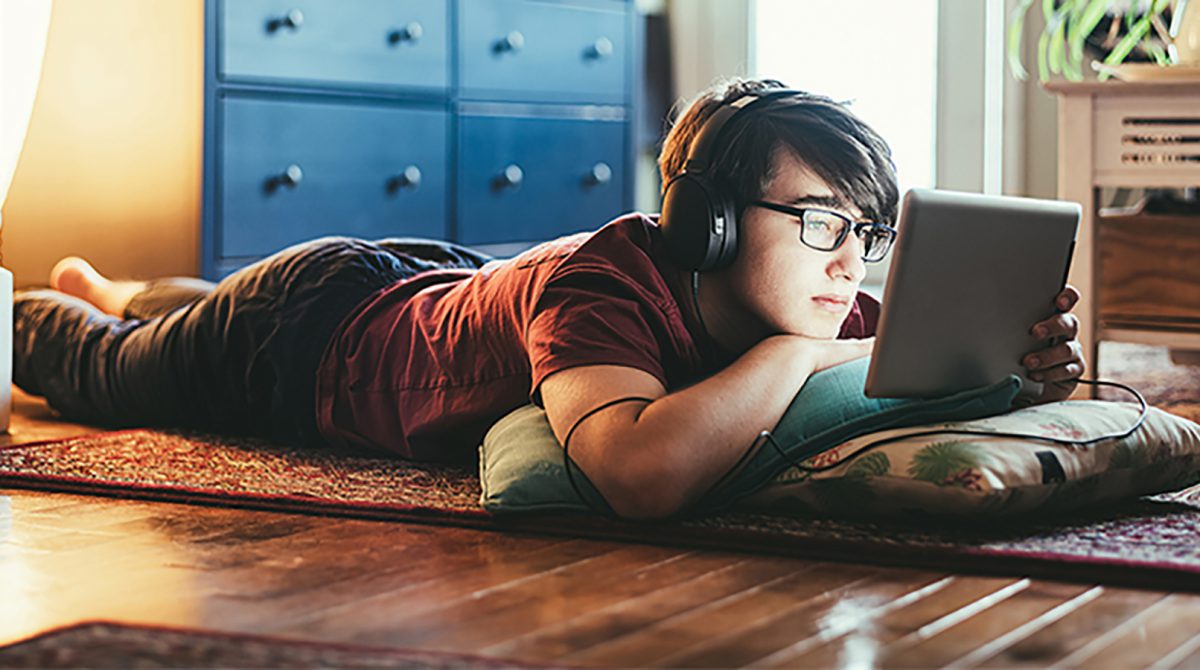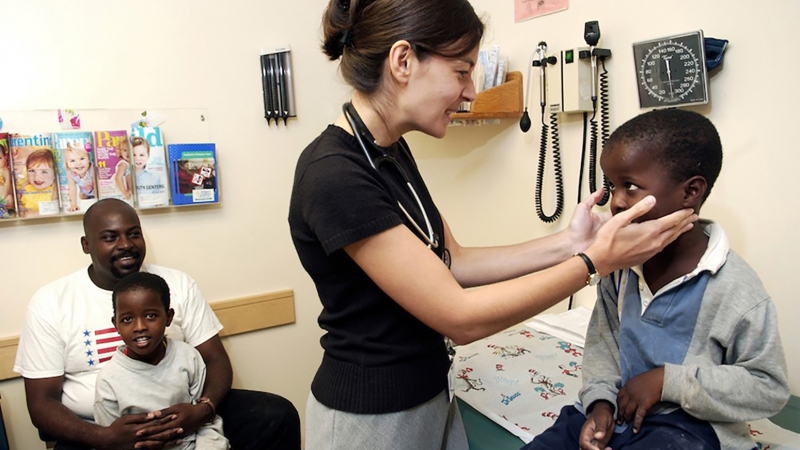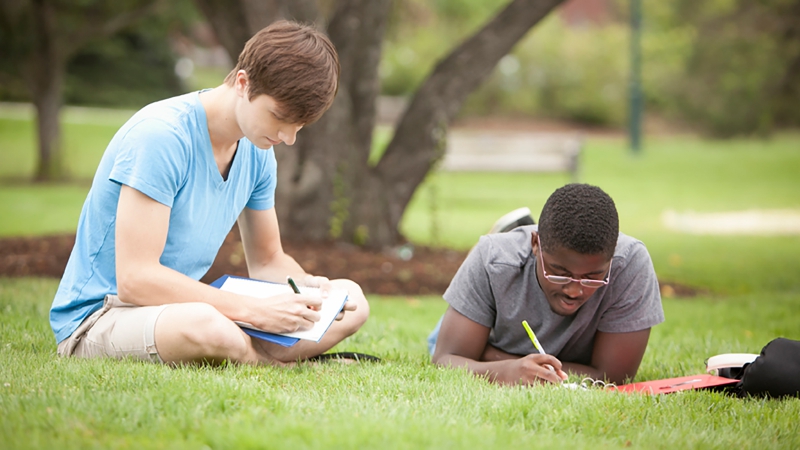Children and young adults may be feeling significant stress during the coronavirus pandemic. Stress is a normal, healthy biological response to perceived threats and challenges, but too much of it can be harmful for our well-being.
Research shows that being in the presence of a compassionate, safe adult can help kids and young adults feel more at ease. Still, there’s no one-size-fits-all solution to help parents navigate this unprecedented crisis.
“There is no playbook for parenting in a pandemic,” said Andy Rosenfeld, M.D., a child psychiatrist and assistant professor at the UVM Larner College of Medicine, in a recent UVM webinar that addressed children’s and young people’s mental health during the COVID-19 pandemic.
Helping Kids Cope with COVID-19
Rosenfeld said it’s critical for parents to “put on their oxygen masks”—to take care of themselves so they can help their children. For parents, that can mean everything from taking a few moments to breathe, go for a walk, or take a nap.
“Acknowledge that sense of overwhelm and the rollercoaster of emotions that go along with it, and then figure out how we can show up for our kids,” he said. “I think a key to a lot of pandemic parenting is tuning into what is going on with our children. As a parent… getting myself in a place where I can be open to listening, and be an active participant in (my children’s) experience will allow me to see what’s needed in that moment, whether it be a peanut butter and jelly sandwich, a walk outside, or some extra screen time with their friends.”
Suggestions for Adolescents and Young Adults
To date, at least 1,102 colleges and universities in the United States have closed their campuses due to the novel coronavirus and moved classes online. It’s estimated that college closures have impacted over 14 million students.
For college students, closed campuses might mean moving back home with their parents, taking classes online, and feeling disconnected from friends.
During the webinar, Annie Valentine, M.Ed., an education and training manager at the Center for Health & Wellbeing at UVM, said that students may be feeling isolated, anxious, or unsafe right now. Perhaps there is conflict at home, or a student is grieving their sudden loss of independence and privacy.
“How do I find my independence… when I had left home and had been living on my own?” Valentine said. “We need to validate their feelings, and listen when say they are struggling.”
Valentine said students need:
- Their feelings and experiences validated
- Opportunities to connect and see people face-to-face using video or texting
- To create a routine
- A reminder to strive for their best—not perfection, and to resist the pressure to do more
- Understand self-care and collective care
- Limit news exposure
David Låg Tomasi, Ph.D., a licensed psychologist, psychotherapist, and inpatient psychiatry group therapist at the University of Vermont Medical Center, said it’s important for parents to try and match their expectations to that of the cognitive and emotional level of adolescents.
The level of cognitive interpretation among adolescents may not match that of adults, especially for things like following rules, concentrating, or assessing judgement, because of neurofunctional differences in the brain of children and adolescents, in comparison to the adult ones.
“As a parent, we want to make sure to do our best for our children,” he said. “And we want to provide appropriate support in a time where we are faced with things that we might not understand ourselves.”
The panel of mental health experts created a list of resources for parents and students. Additional videos, webinars and podcasts can be found online as well.




